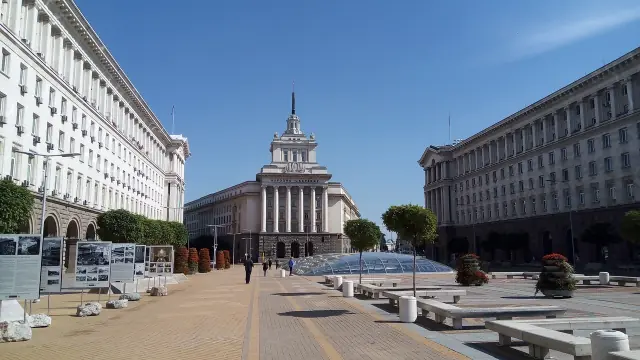
SOFIA, Bulgaria – Preliminary results from Bulgaria’s parliamentary election indicate that nine parties and coalitions are poised to enter the 51st National Assembly, marking an unprecedented level of fragmentation since the country’s transition to democracy in 1989.
With 88% of the protocols processed, the election outcome reflects the highest party diversity since the 1899 Tenth National Assembly, raising concerns over the formation of a stable government amid Bulgaria’s ongoing political turmoil.
The latest vote tally shows former ruling party GERB-SDS leading with 26.15%, followed by the reformist coalition Continue the Change – Democratic Bulgaria (PP-DB) with 15.14%.
The nationalist “Vazrazhdane” party secured 13.7%, while the centrist Movement for Rights and Freedoms – New Beginning (DPS-New Beginning) obtained 10.36%.
Other parties crossing the 4% entry threshold include the Bulgarian Socialist Party – United Left (BSP) with 7.68%, Alliance for Rights and Freedoms (APS) at 7.02%, There Is Such a People (ITN) with 6.97%, and the Moral, Unity, Honor (MECH) coalition securing 4.65%.
The newly formed “Velichie” party narrowly surpassed the threshold at 4.08%, while Blue Bulgaria fell short with 1.14%.
Voter turnout was estimated at 38%, reflecting growing voter apathy amid the prolonged political instability. Additionally, 4.5% of voters chose the “I do not support anyone” option, indicating widespread disillusionment with the political landscape.
Party Reactions to the Preliminary Results
Amid the early vote counts, GERB-SDS leader Boyko Borisov expressed doubts about the feasibility of forming a functioning government, given the fragmented nature of the incoming parliament.
“The election results show how challenging it will be to establish a stable coalition,” Borisov said, suggesting that a higher entry threshold might be necessary to reduce parliamentary fragmentation in future elections.
Delyan Peevski of DPS-New Beginning, however, struck a more optimistic tone, celebrating the election as a pivotal moment for Bulgaria.
“The new beginning is an irreversible fact,” he declared, signaling a push for greater political change and reform under his party’s influence.
“Vazrazhdane,” known for its nationalist and anti-establishment stance, expressed gratitude to its supporters for their continued backing and awaited the final results with confidence.
Meanwhile, leaders of the PP-DB coalition thanked their voters and reiterated their commitment to pushing for anti-corruption legislation as a key priority for the new parliament.
Challenges Ahead for the New National Assembly
The prospect of a fragmented parliament raises concerns about Bulgaria’s ability to form a stable government.
The country has faced a series of snap elections over the past few years due to deadlock and coalition disputes, which have hindered efforts to implement meaningful reforms, address corruption, and improve governance.
The 51st National Assembly will need to bridge deep political divides to form a working coalition capable of delivering on key issues such as economic stability, judicial reforms, and anti-corruption measures.
While some parties have expressed optimism about forging new alliances, the multitude of parties and diverse policy positions will make negotiations challenging.
Whether this election will mark a turning point or deepen Bulgaria’s political crisis remains uncertain, as the final results are awaited.
The Central Election Commission is expected to release the official election results soon, which will further clarify the distribution of seats in the new parliament and the potential paths forward for coalition building.
